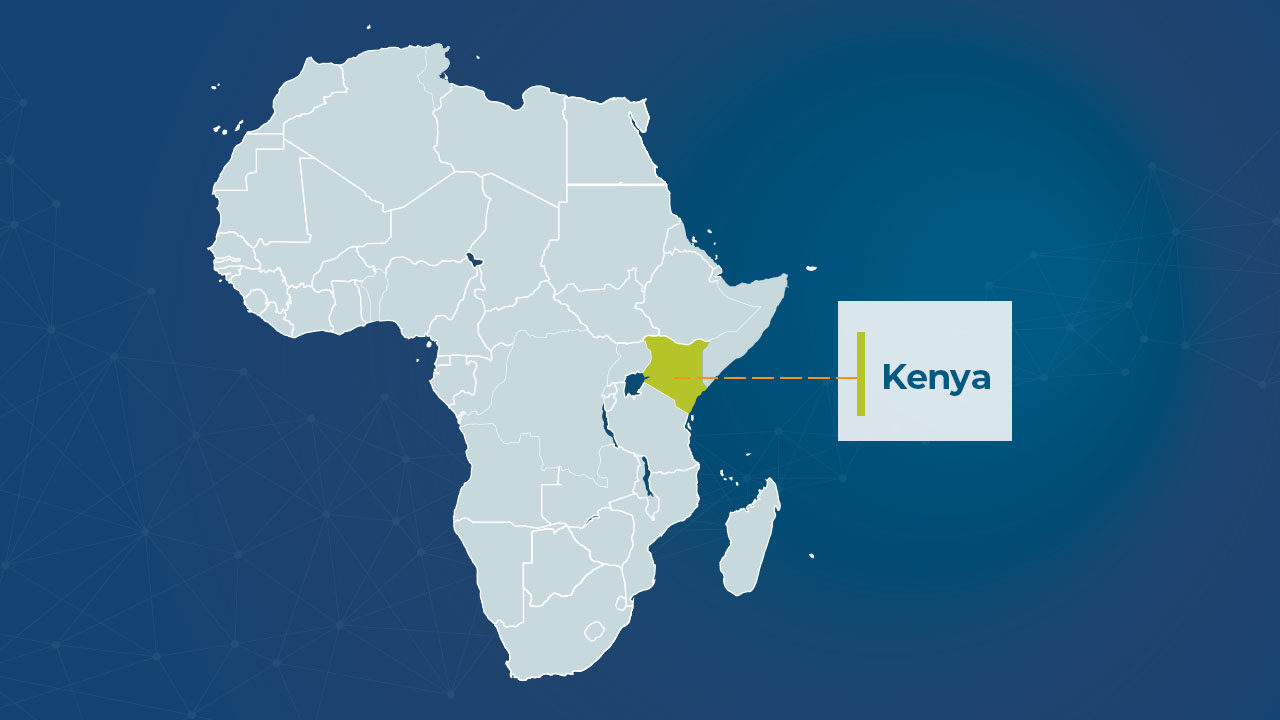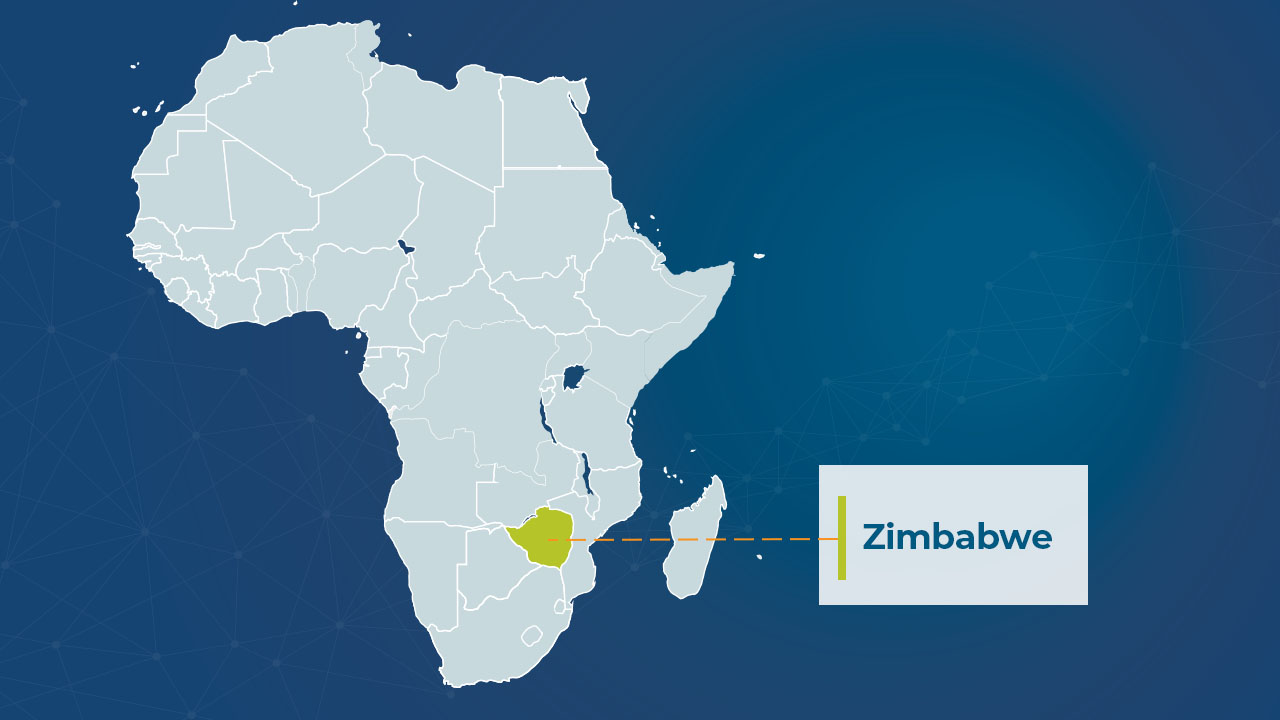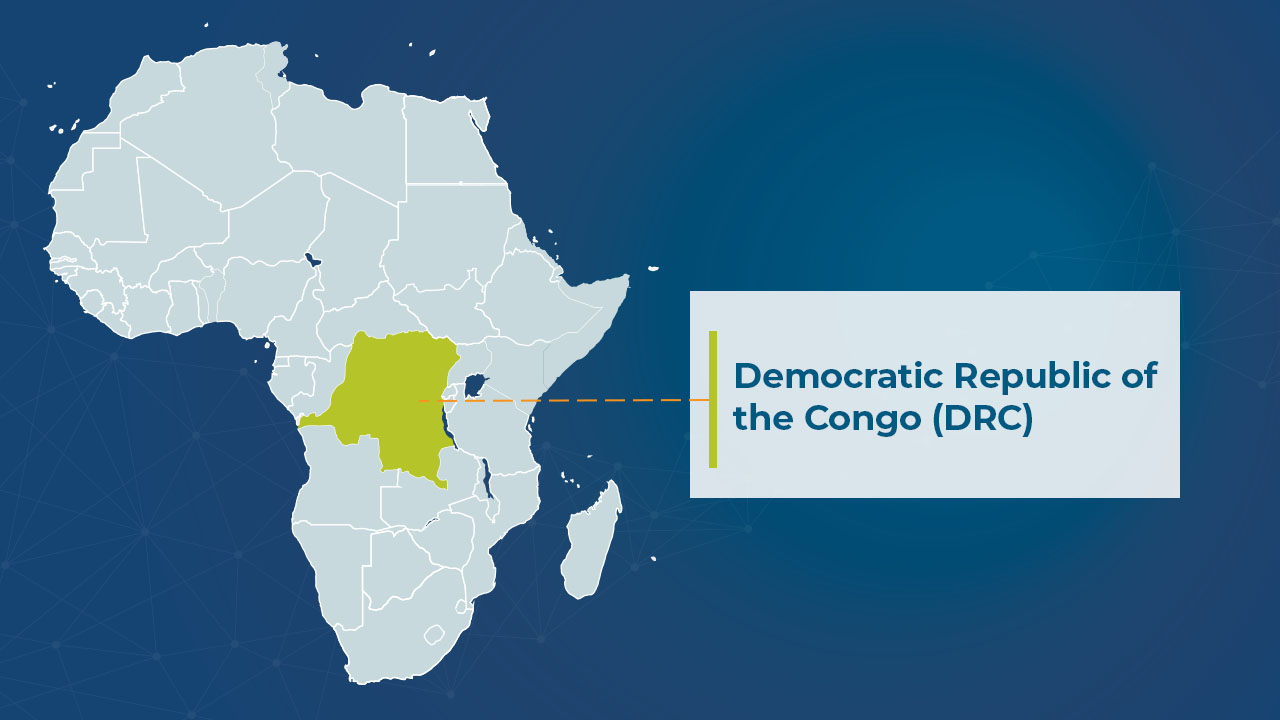This Site and Investigator Spotlight introduces Tariro Makadzange, MD, PhD, from the Charles River Medical Group, Pvt, Ltd (CRMG), in Harare, Zimbabwe. CMRG is listed in FHI Clinical’s database of research sites, and we look forward to working with Dr. Makadzange’s team in the future on research projects that align with their capabilities and the local epidemiology and healthcare needs.
Dr. Makadzange and CMRG were spotlighted in January 2023, and all information on this page is current as of then.

About Dr. Makadzange
Tariro Makadzange founded CRMG and Mutala Research in late 2021, to help address the need for expertise in pandemic responsiveness and clinical trials in Africa, following more than 15 years of experience in clinical, academic and pharma roles. Her research has focused primarily on HIV immunology and implementation science as well as related opportunistic infections such as cryptococcal meningitis, in both perinatally HIV-infected children/adolescents and HIV-infected adults. She has trained and mentored clinicians and researchers in HIV and co-established the Parirenyatwa Hospital Family Care Centre (PHFCC) at the University of Zimbabwe College of Health Sciences (UZCHS), which is now one of the largest HIV treatment programs in Zimbabwe. In the pharmaceutical industry, she led a therapeutic vaccine research program at Gilead Sciences.
She earned an MD at Harvard Medical School and a PhD (DPhil) in Immunology at the University of Oxford University. She trained in Internal Medicine at the University of Washington and completed a fellowship in Infectious Diseases at Massachusetts General Hospital and Brigham and Women’s Hospital, where she later joined the faculty and formed a research partnership that resulted in the establishment of the Infectious Diseases Research Laboratory in Harare. She has also held academic positions at Harvard Medical School, Stanford University and the University of Zimbabwe.
- Attitudes to vaccine mandates among late adopters of COVID-19 vaccines in Zimbabwe. Vaccines. July 2022
- Investigating attitudes, motivations and key influencers for vaccine uptake among late adopters of COVID-19 vaccination in Africa. Preprint. April 2022
- Evaluation of HIV-1 reservoir size and broadly neutralizing antibody susceptibility in acute antiretroviral therapy-treated individuals. AIDS. February 2022
- Brief report: efficacy and safety of bictegravir/emtricitabine/tenofovir alafenamide in females living with HIV: an integrated analysis of 5 trials. Journal of Acquired Immune Deficiency Syndrome. December 2021
- Survival following screening and preemptive antifungal therapy for subclinical cryptococcal disease in advanced HIV infection. AIDS. October 2021
- The transient effect of a peer support intervention to improve adherence among adolescents and young adults failing antiretroviral therapy in Harare, Zimbabwe: a randomized control trial. AIDS Research and Therapy. June 2021
- Diagnostic accuracy of pan-degenerate amplification and adaptation assay for HIV-1 drug resistance mutation analysis in low- and middle-income countries. Journal of Clinical Microbiology. August 2020
- Plasma concentration of neurofilament light chain protein decreases after switching from tenofovir disoproxil fumarate to tenofovir alafenamide fumarate. PLoS One. December 2019
- Switching to fixed-dose bictegravir, emtricitabine, and tenofovir alafenamide (B/F/TAF) in virologically suppressed HIV-1 infected women: a randomized, open-label, multicenter, active-controlled, phase 3, noninferiority trial. Journal of Acquired Immune Deficiency Syndrome. November 2019
- Trends in pretreatment HIV-1 drug resistance in antiretroviral therapy-naive adults in South Africa, 2000–2016: a pooled sequence analysis. eClinicalMedicine. March 2019
- Independent and combined effects of improved water, sanitation, and hygiene, and improved complementary feeding, on child stunting and anaemia in rural Zimbabwe: a cluster-randomised trial. The Lancet: Global Health. January 2019
- Antibody responses in HIV-infected patients with advanced immunosuppression and asymptomatic cryptococcal antigenemia. Open Forum Infectious Diseases. December 2018
- Superior efficacy and improved renal and bone safety after switching from a tenofovir disoproxil fumarate- to a tenofovir alafenamide-based regimen through 96 weeks of treatment. AIDS Research and Human Retroviruses. April 2018
- A simple phosphate-buffered-saline-based extraction method improves specificity of HIV viral load monitoring using dried blood spots. Journal of Clinical Microbiology. June 2017
- Clinical, virologic, immunologic outcomes and emerging HIV drug resistance patterns in children and adolescents in public ART care in Zimbabwe. PLoS One. December 2015
- The Sanitation Hygiene Infant Nutrition Efficacy (SHINE) trial: rationale, design, and methods. Clinical Infectious Diseases. December 2015
- Plasma concentrations of hepcidin in anemic Zimbabwean infants. PLoS One. August 2015
- ‘I was thinking too much’: experiences of HIV-positive adults with common mental disorders and poor adherence to antiretroviral therapy in Zimbabwe. Tropical Medicine & International Health. March 2015
- AMBITION-cm: intermittent high dose AmBisome on a high dose fluconazole backbone for cryptococcal meningitis induction therapy in sub-Saharan Africa: study protocol for a randomized controlled trial. Trials. June 2015
- Setting the research agenda in a resource-limited setting–viewpoint. Journal of Acquired Immune Deficiency Syndrome. January 2014
About CRMG

Overview and mission
- Founded in 2021
- Clinical research organization (CRO) focused on diversifying research by including Africans in medical clinical trials.
- Mission: To work alongside innovators to support clinical development of therapeutics by providing world-class clinical research services in Africa
- CRMG is staffed by African physicians and scientists committed to developing world-class research in Africa that is Africa-focused, Africa-led and globally partnered.
- Clinical trial site
- Clinical operations
- Project management
- Clinical monitoring
- Medical monitoring
- Laboratory and diagnostic services
- Quality assurance
- Clinical data management
- Medical, scientific and regulatory writing
- HIV
- HIV-related opportunistic infections
- COVID-19
CRMG organizations

- Vaccine hesitancy
- Vaccine effectiveness
- Adolescent HIV treatment cascade
- Management of individuals with advanced HIV disease and opportunistic infections
- Burden of disease in Africa
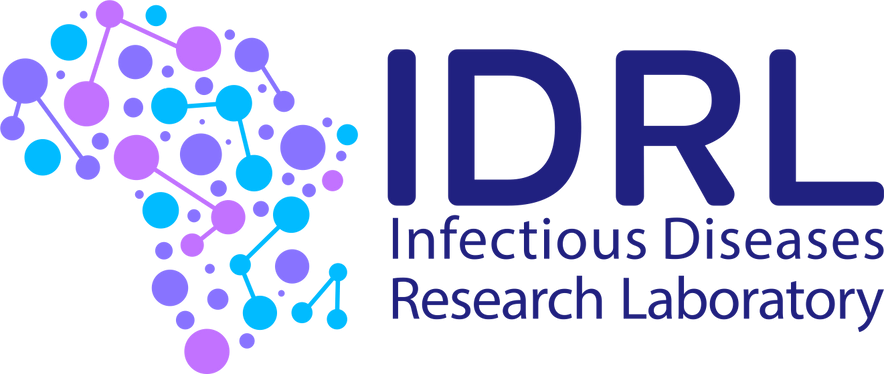
- Basic immunology and virology research in infectious diseases pertinent to the developing world
- Located at the University of Zimbabwe College of Health Science
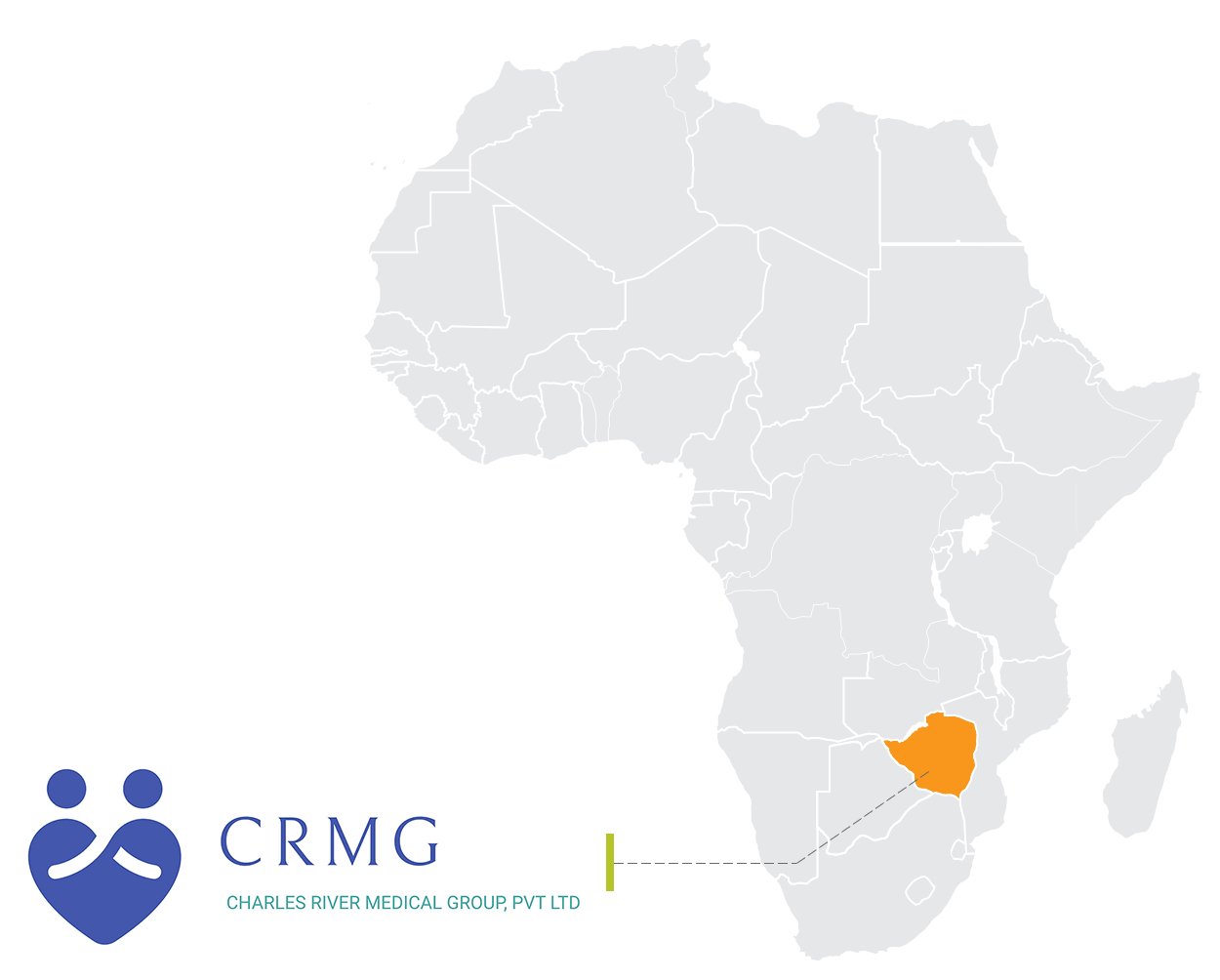
The research site: CRMG
CRMG, Mutala Research and IDRL are located in Harare, the capital of Zimbabwe, with a population of more than 1.6 million people in the city and 2.8 million people in the metropolitan area.
Staff
- Clinicians who are specialists in clinical trials, vaccinology, internal medicine, nephrology, infectious diseases and pediatrics
- Researchers
- Laboratory scientists with +15 years of clinical trials experience
Therapeutic areas of focus
- Cardiovascular disease
- Endocrinology
- Oncology
- Hematology
- Nephrology
- Infectious diseases
- Women’s health
- Pediatric and adolescent health
- Vaccines
Recent or ongoing research
- COVID-19 vaccine hesitancy study
- COVID-19 vaccine effectiveness study
- Phase I COVID-19 vaccine research study
Capabilities
- HIV viral load monitoring
- SARS CoV-2 monitoring
- PCR
- 14-color flow cytometry (BD Fortessa)
- ELISpot assays
- PBMC isolation
- Cell processing and storage
- Biochemical analysis including LFTs
- Endocrinology studies
- Lipid profiles
- Inflammatory markers
- HIV sequencing
- HIV drug resistance testing
- SARS-CoV-2 sequencing
- General sequencing
- Complete blood count
- Coagulation studies
Future research
The disease profile of Zimbabwe

5th
highest HIV prevalence rate in the world
13%
prevalence of HIV among adults
30%
8%
mother-to-child transmission rate
#1
cause of non-neonatal child deaths
26%
32
incidence of malaria (per 1,000 population at risk)
50%
of the population at risk of malaria infection
12%
of malaria cases detected among children

